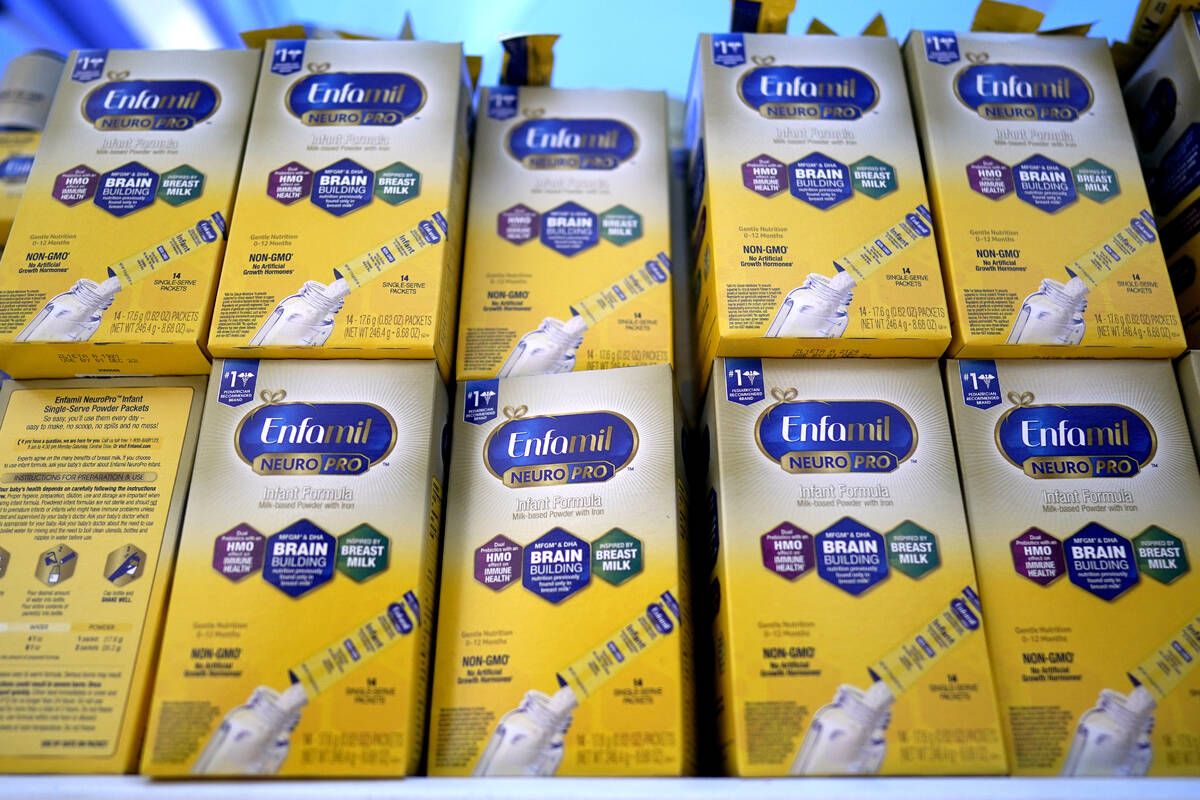VICTOR JOECKS: How government policy led to formula shortages
The baby formula shortage is a case study in how government frequently limits competition and consumer options. Occasionally, these market distortions produce a full-scale crisis.
As many new parents know firsthand, there’s a major shortage of baby formula. A recent study found the Las Vegas metro area had the worst shortfall in the country. The out-of-stock-rate topped 50 percent. For parents of many newborns that’s an all-consuming crisis, especially if a baby needs a certain type of formula. A baby who doesn’t receive proper nutrition can suffer lifelong consequences, including learning challenges and stunted growth.
One might look at this fiasco and conclude the free market failed. After all, private companies make baby formula, and now there’s not enough. The government must ride to the rescue.
President Joe Biden took that tone last week. He invoked the Defense Production Act to increase supply and announced he was using military aircraft to fly in formula from Europe. “I’ve directed my team to do everything possible to ensure there’s enough safe baby formula and that it’s quickly reaching families that need it the most,” Biden said.
What he didn’t mention are the numerous government policies and regulations that contributed to the problem. Start with the supply chain and labor shortages caused partially by his reckless spending.
Then in February, Abbott Nutrition issued a major recall of baby formula. A plant in Michigan was thought to be the source of illness among a handful of babies. The company shut down the plant while the FDA conducted an investigation. In March, the FDA said it couldn’t definitely establish a link between the formula and the illnesses. It did find unrelated other sanitary violations, and the plant remained shuttered.
No one wants tainted baby formula. But there’s been plenty of time to fix violations that amounted to little more than “do a better job keeping equipment clean.” Unsurprisingly, as political pressure increased, the FDA struck a deal to restart production. That should have happened weeks ago.
Normally, this would give another company a chance to meet the demand. But baby formula is one of the most highly regulated food products in the country. An upstart company can’t just begin to make baby formula. It has to wade through the red tape and win regulatory approval. That’s not a cheap or quick process.
Another factor is the federal Special Supplemental Nutrition Program for Women, Infants and Children — known as WIC. It pays for more than half of the country’s infant formula. Federal law requires that states give their contracts to the company that offers the largest discount. Three companies hold all those contracts. Unsurprisingly, they dominate the market. This severely limits the incentives for would-be competitors to join the market.
So why didn’t companies simply fly in formula from Europe? Once again, look at the barriers imposed by the government. Many European formulas don’t meet FDA labeling or nutritional requirements. Never mind the millions of European babies using them. Also, the United States has a tariff on formula designed to discourage international products.
Don’t give government credit for “solving” the formula shortage. It spent decades creating the conditions that left the country vulnerable to such a crisis.
Contact Victor Joecks at vjoecks@reviewjournal.com or 702-383-4698. Follow @victorjoecks on Twitter.























